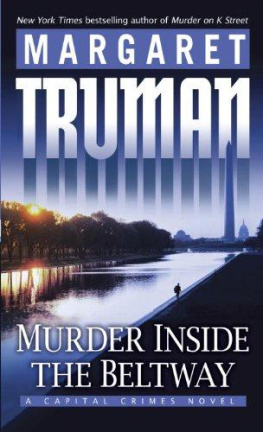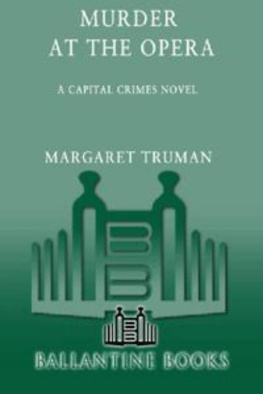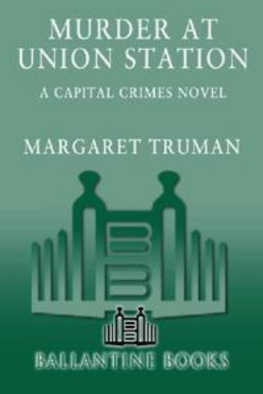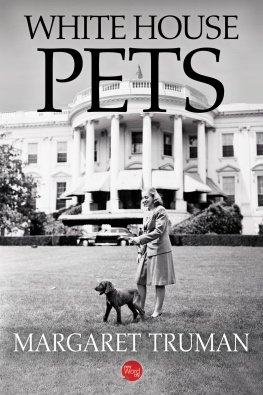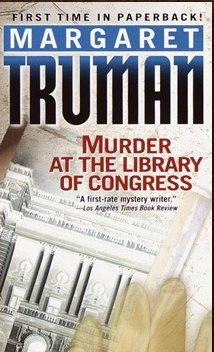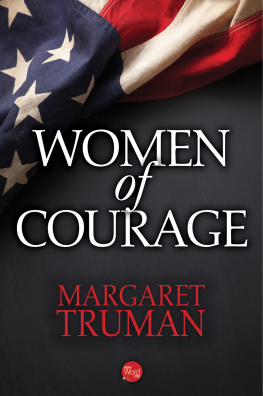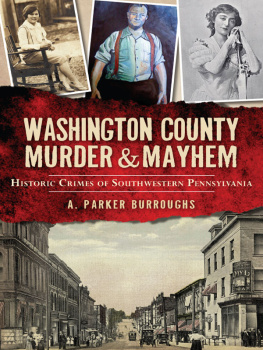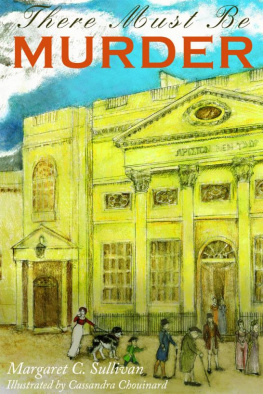Margaret Truman - Murder at The Washington Tribune: A Capital Crimes Novel
Here you can read online Margaret Truman - Murder at The Washington Tribune: A Capital Crimes Novel full text of the book (entire story) in english for free. Download pdf and epub, get meaning, cover and reviews about this ebook. year: 2005, publisher: Ballantine Books, genre: Detective and thriller. Description of the work, (preface) as well as reviews are available. Best literature library LitArk.com created for fans of good reading and offers a wide selection of genres:
Romance novel
Science fiction
Adventure
Detective
Science
History
Home and family
Prose
Art
Politics
Computer
Non-fiction
Religion
Business
Children
Humor
Choose a favorite category and find really read worthwhile books. Enjoy immersion in the world of imagination, feel the emotions of the characters or learn something new for yourself, make an fascinating discovery.

- Book:Murder at The Washington Tribune: A Capital Crimes Novel
- Author:
- Publisher:Ballantine Books
- Genre:
- Year:2005
- Rating:4 / 5
- Favourites:Add to favourites
- Your mark:
- 80
- 1
- 2
- 3
- 4
- 5
Murder at The Washington Tribune: A Capital Crimes Novel: summary, description and annotation
We offer to read an annotation, description, summary or preface (depends on what the author of the book "Murder at The Washington Tribune: A Capital Crimes Novel" wrote himself). If you haven't found the necessary information about the book — write in the comments, we will try to find it.
Margaret Truman: author's other books
Who wrote Murder at The Washington Tribune: A Capital Crimes Novel? Find out the surname, the name of the author of the book and a list of all author's works by series.
Murder at The Washington Tribune: A Capital Crimes Novel — read online for free the complete book (whole text) full work
Below is the text of the book, divided by pages. System saving the place of the last page read, allows you to conveniently read the book "Murder at The Washington Tribune: A Capital Crimes Novel" online for free, without having to search again every time where you left off. Put a bookmark, and you can go to the page where you finished reading at any time.
Font size:
Interval:
Bookmark:
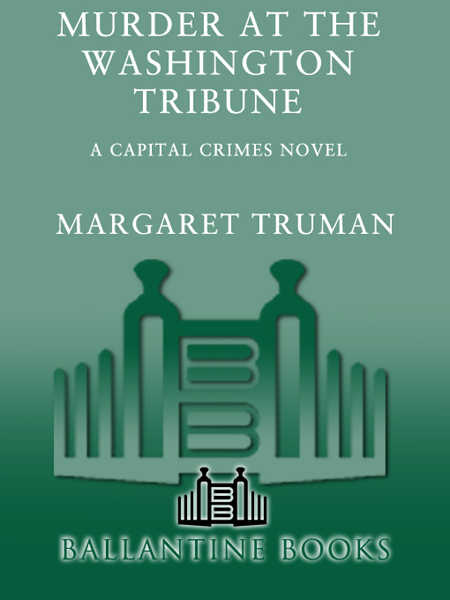
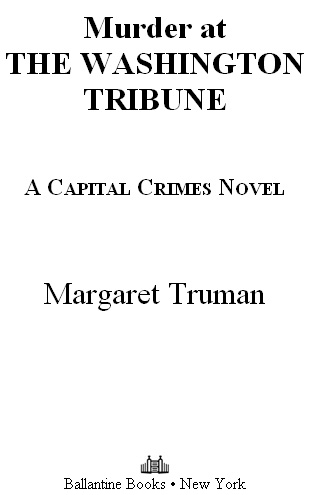
Readers of other books in my Capital Crimes series know that I always use real Washington places whenever possible. Ive never seen a reason to create fictitious restaurants, hotels, parts of the city, or its institutions when so many wonderful real ones exist.
But for this book, Ive found a reason to deviate from that practice and to fabricate a newspaper, The Washington Tribune.
As everyone knows, there is a real newspaper in Washington, D.C., The Washington Post, one of the nations most influential publications. Politics is Washingtons biggest industry, and what the Post publishes each day about our government can have tremendous impact on readers around the country, and at times the world. At the same time, it is a quintessential hometown newspaper, unlike its competitor, The New York Times, a national newspaper that simply happens to be published in New York.
There is also The Washington Times, an unabashedly right-wing daily paper founded and owned by the Rev. Sun Myung Moon, self-proclaimed ruler of the universe. The Times offers no substantial competition for the Post despite having some good journalists on its staff.
So, why not Murder at The Washington Post, or Murder at The Washington Times?
Because certain characters in this book are decidedly unsavory and professionally bankrupt, Im certain the Post or the Times would not appreciate having them portrayed as employees of their publications, nor would they countenance the linking of murder with their brand names on the cover of a bestselling novel. More to the point, neither The Washington Post nor The Washington Times, nor any of the people associated with either paper, in fact played any part in inspiring the characters Ive imagined for my book, or the story Ive told. And who wants to get letters of complaint instead of letters of praise?
So, The Washington Tribune it shall be, and any similarity to the real newspapers in Washington is purely coincidental.
Margaret Truman
New York City
2005
Another speaker came to the podium.
Joe Wilcox leaned close to his wife and muttered just loud enough for her pretty ears only, Another speaker. He shifted position in his chair and twisted his neck against a growing stiffness and full-blown boredom. With them at a front table were three couples, others from The Washington Tribune and their spouses whod agreed to attend the awards evening with the Wilcoxes out of friendship, or obligation, or maybe a little of both.
The dinner was an annual event for the Washington Media Association, whose members came from the ranks of Washington, D.C.s, print and broadcast journalists. Like most such groups, its leadership was fond of bestowing awards on deserving members and on their chosen profession, giving that same leadership a reason for taking to the podium to express their views on many things, mostly political. An occasional, usually accidental, bit of humor provided blessed audience relief from those who spoke endlessly, others longer.
At least theyre getting to the awards, Wilcox thought as the speaker said In conclusion for the third time. Wilcox looked to a table at which his daughter, Roberta, sat. She was the reason Joe and Georgia were there.
The speaker at the podium finally did conclude, and the bestowing of awards commenced, twenty-two in all. Three weeks lateror so it seemedRoberta was the sixteenth recipient called to the podium to accept the award for Best Local Investigative ReportingBroadcast, accompanied by the producer and the director of a TV series theyd done on corruption within the Washington MPD.
Doesnt she look beautiful? Georgia said.
Of course she does, Wilcox replied. Because she is.
Roberta Wilcox did look stunning that evening in a stylish pantsuit the color of ripe peaches. But it was radiance from within that created a virtual aura around her, enhanced by a bright smile that had lit up the nightly news since shed joined the station three years earlier. The best-looking newscaster in D.C. was the consensus. She usually wore her auburn hair pulled back when on the air, but this evening shed let it down, framing an oval face with inquisitive raisin-brown eyes, her skin fair but not pale, her makeup tastefully underapplied. She thanked the station for having given her the freedom and support to pursue the expos, read helpful names from a slip of paper including the producer and director, and ended by crediting her parents for having instilled in her the natural curiosity necessary to get the job done. Of course, she added, I come from good reportorial stock. My father is as good a reporter as there is in this city. She watched him wince, tossed him a kiss off her fingertips, and led her fellow award winners back to their table.
It was announced from the podium that the evening had come to an end, and most of the three hundred men and women left their tables to mingle, gravitating to familiar faces and offering congratulations to the winners, and to their families.
Howd an ugly guy like you end up with such a knockout of a daughter? a Trib reporter asked Wilcox, accompanied by a laugh and a slap on the back.
Her mothers genes, Wilcox replied, nodding in the direction of his wife, whod gone to Robertas table to talk with her and her celebrating tablemates.
Must be, Wilcoxs friend said. He lowered his voice. What do you think of Hawthorne getting an award? Gene Hawthorne, a Trib Metro reporter, had been cited for a three-part series hed done on a local banks illegal payoffs to a district official.
Wilcox shrugged, which accurately reflected what he was thinking. Hawthorne, in his late twenties, did not rank high on his list of favorite people. Wilcox wasnt alone in his negative view of the abrasive, aggressive young reporter who had a penchant for rubbing colleagues the wrong way, his knife always in search of an unprotected back, it seemed, and there were few toes fast enough to avoid being stepped on. Equally galling was the backing he received from the Tribs ranking editors and management, who obviously viewed the young, smug, sandy-haired, self-possessed reporter as a rising star, which, of course, he was, a bit of news that wasnt lost on anyone at the Trib, Joe included.
He saw in the young reporter something of himself years ago when hed come to The Washington Tribune, brimming with ambition and possessing the energy to fuel it. But it had been different at the paper twenty-three years ago. Then, there were still plenty of grizzled veteran reporters from whom to learn, men (almost exclusively) who lived the life of a reporter as portrayed in movies and plays, characters straight out of The Front Page, their heads surrounded by blue cigarette and cigar smoke, pints of whiskey in their desk drawers, the rattle and clank of their typewriters testifying to their daily output, spoken words tough and profane, written words sharp and to the point. There werent many of them left. The younger Trib reporters, including Wilcox, had been hired to supplement that veteran staff. But eventually Gene Hawthorne and dozens of men and women like him had been brought in to replace the over-fifty crowd. There had been a flurry of buyouts offered over the past few years, and many newsroom veterans had jumped at the severance package with its generous cash settlement, pension options, and health and life insurance. In came the new blood, working at half the pay of the reporters whod gone on to their retirement, or in many cases new jobs. One of the
Next pageFont size:
Interval:
Bookmark:
Similar books «Murder at The Washington Tribune: A Capital Crimes Novel»
Look at similar books to Murder at The Washington Tribune: A Capital Crimes Novel. We have selected literature similar in name and meaning in the hope of providing readers with more options to find new, interesting, not yet read works.
Discussion, reviews of the book Murder at The Washington Tribune: A Capital Crimes Novel and just readers' own opinions. Leave your comments, write what you think about the work, its meaning or the main characters. Specify what exactly you liked and what you didn't like, and why you think so.

